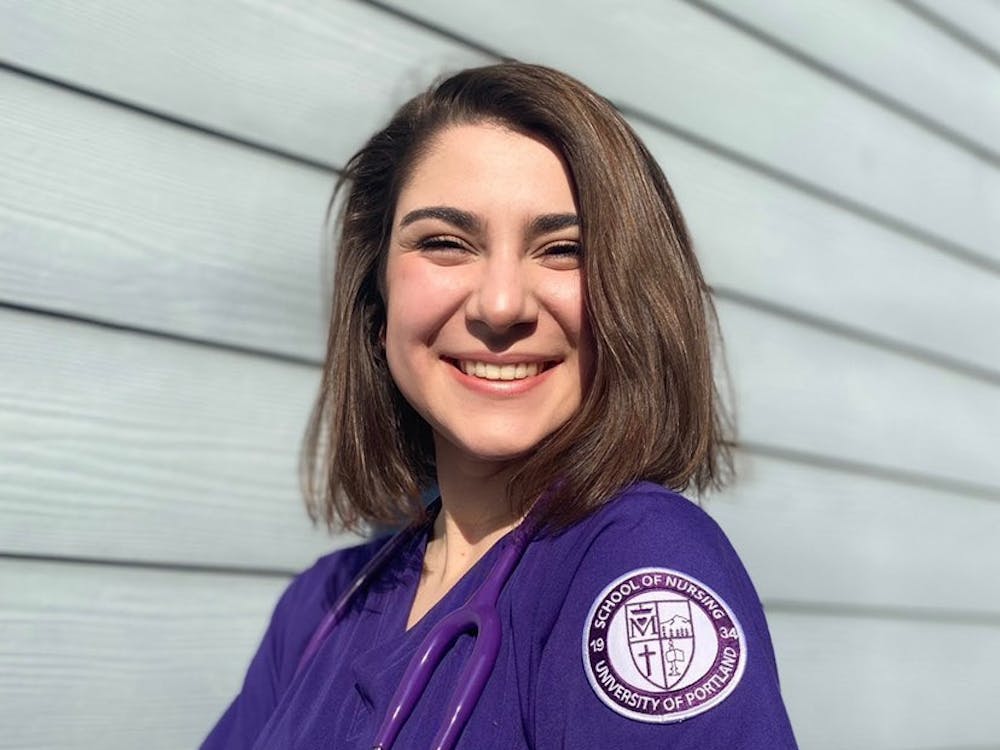It’s November again.
The weather is getting colder, leaves are falling down from trees, your parents keep calling you to make sure you bought a plane ticket back home for the holidays and — most notably — Thanksgiving is just around the corner.
(Un)affectionately known for tense reunions with extended family and slightly heated political conversations, Thanksgiving doesn’t have the best reputation.
Political discourse aside, this holiday can be insufferable for a lot of people, but not many people talk about how difficult this day is for people suffering with eating disorders.
As far as American holidays go, this is arguably the most centered around food. Turkey, gravy, mac’n’cheese, stuffing and pumpkin pie. Fasting all day until dinner starts at 4 p.m. Gorging on food then joking about how you’ll need to work it all off the next day.
The entire day is about food.
Things like big family dinners, cooking for hours and feeling full of decadent food can be fun or nostalgic for many people (that’s why we keep doing this every year).
But Thanksgiving is often a nightmare for someone struggling with food.
If pre-meal anxiety is bad for someone on normal days, Thanksgiving dinner seems almost impossible.
If you have an eating disorder, chances are you’re already working out a game-plan for the big day. It’s a good idea to head into the holiday knowing how you can best support yourself, so I recommend researching tips on how to survive the holiday and gathering coping skills that can help you out.
And if you don’t have a treatment team, the National Eating Disorder Association helpline is another great resource for support.
But for those with loved ones who suffer from an eating disorder, it might be hard to figure out where you can help out.
If you are spending Thanksgiving with someone who struggles with food, I would highly recommend educating yourself on eating disorders and learning how you can be of support.
In my experience, talking to someone about my eating disorder can be incredibly anxiety-provoking, especially when I am asking for meal support from a loved one — it's often hard to detail what I want from family or friends. So I’ve compiled a list of what I’ve found helpful from my support system that I hope can help others get through the holiday.
Here's some advice on how to help your loved ones through Thanksgiving.
Stray away from body comments
If you’re seeing a friend or family for the first time in a while, don’t comment on weight gain or loss — you might not know the full story.
Avoid making body comments about yourself, too. Lamenting the weight you might gain from eating a big dinner not only hurts your own self esteem, it makes those around you think about their own bodies in a negative light.
Avoid food judgment
There doesn’t have to be morality assigned to food groups. All foods fit in a balanced diet. It’s really not helpful to say you feel “guilty” for eating dessert or getting seconds.
Also don’t drone on about the calories in a dish or complain about how long it’ll take you to work off dessert. These comments can be incredibly harmful to someone in recovery.
Don’t skip meals
Avoiding food before the “big meal” isn’t healthy or practical for anyone, but especially for someone in eating disorder recovery. If you’re celebrating the holiday with someone who struggles with food, you can support them by treating the day as any other, eating breakfast and lunch as usual so as to not build up dinner as a huge event and add to any pre-meal stress.
Don’t helicopter
It might be tempting to hover, constantly checking in with your loved one, watching everything they eat or taking note of their every move. But this behavior just brings attention to their food.
Be available to help out in ways they ask for, but try not to be a helicopter-helper. Give your loved one some space to breathe and support themself.
Ask how you can help
When in doubt, just ask. Not everyone who struggles with food wants the same support so go ahead and ask your loved one what they would appreciate in terms of meal support.
To those dreading Thanksgiving this year, I see you and I want to let you know it’s going to be ok — we can get through the day together.
And to everyone planning to spend the holiday with a loved one who may be struggling with food, I hope you take some of my advice and make an effort to support your friends and family.
Emma Sells is the Multimedia Editor for The Beacon and can be reached at sells23@up.edu.
Have something to say about this? We’re dedicated to publishing a wide variety of viewpoints, and we’d like to hear from you. Voice your opinion in The Beacon.








